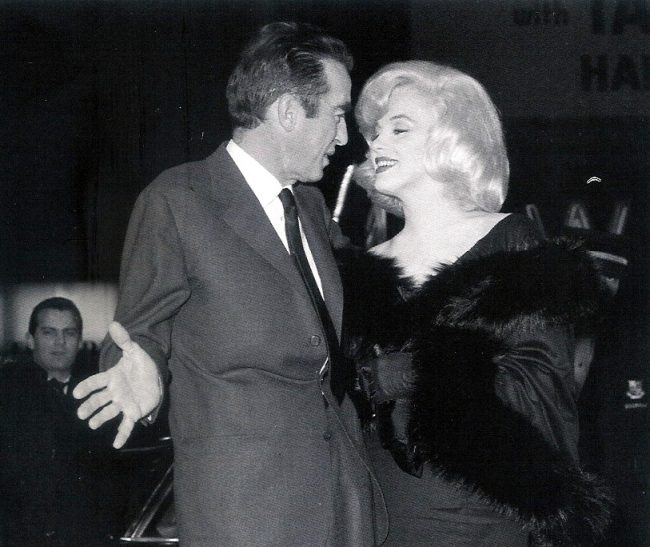
Making Montgomery Clift will have its UK premiere at the Glasgow Film Festival, screening at the Everyman on Thursday, February 28, and Friday, March 1, following rave reviews in the US. (As yet, it’s unclear whether Monty’s friendship with Marilyn features in the documentary, but The Misfits was one of his most important films, and likely to be mentioned.)
Thanks to Fraser Penney
“Co-director Robert Clift is the film’s onscreen searcher, heard in incisively written voiceover and seen poring over an astounding, and often poignant, assortment of Clift family memorabilia, items that go well beyond the usual photo albums and home movies … the film unravels the accepted wisdom that Clift’s life was one of inner conflict and painfully guarded truths. In footage of him at leisure, his joy and exuberance light up the screen. He might not have been ‘out’ — who was in those benighted times? — but his intimates testify that he was anything but closeted. By refusing to sign a studio contract, he was not only maintaining his artistic independence but protecting his private life from the kind of show marriage, like Rock Hudson’s, that the Hollywood publicity machine insisted on for gay stars.” – Sherri Linden, Hollywood Reporter
“That ‘secret’ – that Clift was gay during an impossible era (the 1930s through the 60s) – led many interpreters to conclude that the actor must have led a life riddled with fear and shame. It hardly helped lend nuance to that reading that Clift was a well-known and long-time abuser of pain killers and alcohol, actions which likely sped his death from a heart attack at 45 in 1966 … In fact, the attitudes he and his family held towards his relationships with men were strikingly modern.
[Robert] Clift asserts that the actor’s use of alcohol and prescription drugs stemmed, primarily, from a near-fatal car accident in 1956. He used them to numb his physical pain. The accident changed his appearance, and many biographers assumed Clift felt ruined by it and, so, drank more.
Many of the myths surrounding Clift sprang from two biographies: a salacious one by Robert LaGuardia and another flawed work by Patricia Bosworth, titled A Life. The film-makers interviewed Bosworth extensively for the movie, but they contrast her words with old taped conversations she had with the actor’s brother. He pleaded with her to make changes to her book to correct the mischaracterizations. While she sounds apologetic, the changes were never made.
As to why Bosworth drew on the gay-self-hate narrative, and why that view took hold, the directors blame the homophobia of the time the book was written, in the 1970s. ‘The view then about queer people was that they would be inherently conflicted or tormented about their sexuality,’ said [Hillary] Demmon. ‘If you have a story that tracks along that line, that will feel true to people. Which gives that narrative a lot of traction. Now we’re at a historical point in mainstream queer discourse where that story seems less viable.'” – Jim Farber, The Guardian
“And an alternative version of Monty, laid out by Making Montgomery Clift: Montgomery Clift was open about his sexuality. He was not ‘tormented’ by it. The man even had a sense of humor! Some of his favorite work came after that crash. Montgomery Clift’s story is not a tragedy of self-loathing, but a tale of a man who refused to be put in a box by the Hollywood system—only to be put into a different sort of box after his death, when he was no longer around to counter the narrative that began to calcify soon after his passing.” – Rebecca Pahle, Film Journal